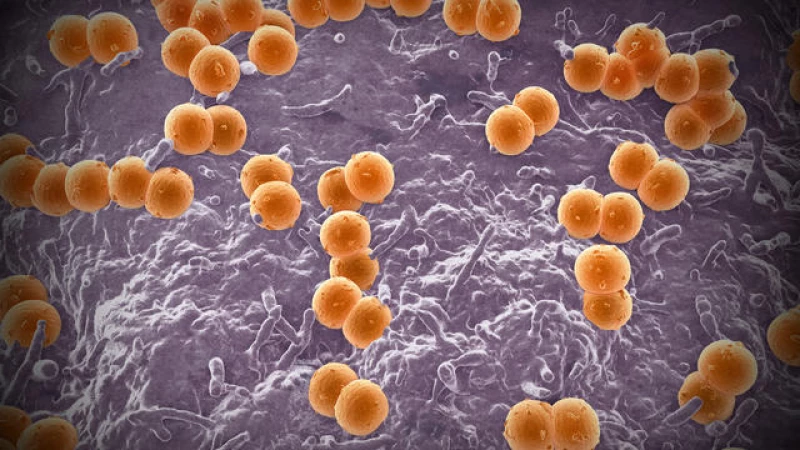The Centers for Disease Control and Prevention is warning about a rise in meningococcal disease, a rare bacterial illness that can lead to meningitis, a potentially fatal infection.
In an alert to doctors on Thursday, the CDC noted an increase in cases of one type of invasive meningococcal disease, most of it due to a specific strain of bacteria.
The cases were disproportionately more common in adults ages 30 to 60, in Black people and in people who have HIV, the CDC said.
Here's what else to know about the disease:
Meningococcal disease symptoms
Meningococcal disease can take several different forms. It usually presents as an infection of meningitis or a bloodstream infection, according to the CDC.
"Both of these types of infections are very serious and can be deadly in a matter of hours," the agency notes.
Meningococcal meningitis is when tissue covering the brain and spinal cord becomes infected and swollen. Symptoms usually include:
- Fever
- Headache
- Stiff neck
Additional symptoms may include nausea, vomiting, confusion, and photophobia (when eyes are more sensitive to light).
Meningococcal bloodstream infection damages the walls of the blood vessels and causes bleeding into the skin and organs. Possible symptoms include:
- Fever
- Chills
- Fatigue
- Vomiting and diarrhea
- Cold hands and feet
- Severe aches
- Rapid breathing
- Dark purple rash
Meningococcal disease transmission
People can spread meningococcal bacteria to others through respiratory and throat secretions (saliva or spit), according to the CDC.
This means the disease can be transmitted during extended close or direct contact, like coughing, sharing drinks, or kissing.
"Fortunately, they are not as contagious as germs that cause the common cold or the flu," the CDC notes. "People do not catch the bacteria through casual contact or by breathing air where someone with meningococcal disease has been."
Is there a vaccine or treatment for meningococcal disease?
The infection can be treated with antibiotics, but quick treatment is essential. An estimated 10% to 15% of infected people die, and survivors sometimes suffer long-term issues such as loss of limbs, deafness, brain damage, or nervous system problems.
There also are vaccines against meningococcal disease.
Officials recommend that all children should get a meningococcal conjugate vaccine, which protects against the rising strain, at around the time they enter middle school.
As the effectiveness of vaccines wanes over time, the CDC now suggests a booster shot at the age of 16. Additionally, the CDC recommends that teenagers consider receiving a MenB vaccine between the ages of 16 and 18. This is particularly important for individuals at higher risk, such as those in areas experiencing outbreaks or individuals with conditions like HIV.
- Explore our comprehensive guide to preventive health screenings and vaccinations for each decade, spanning from your 20s to your 60s
It is crucial for individuals to stay informed about the latest recommendations for vaccinations to protect themselves and their communities.







